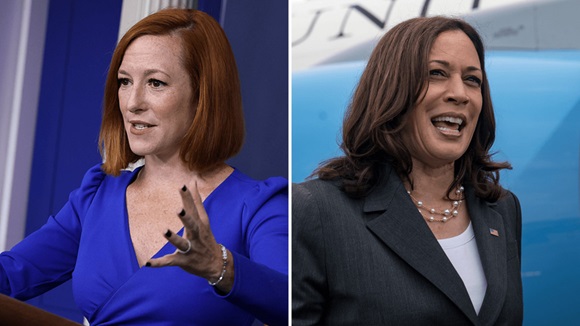
Dear Commons Community,
The American Federation of Teachers (AFT) held its annual conference this week and has passed a resolution on artificial intelligence. There are twelve aspects to the resolution, all of which are important. I especially like the wording on “the responsible and principled development and use of AI and social media technologies” as well as “the critical need for equitable access to AI and advanced technologies across all sectors, advocating for the democratization of technological benefits to ensure that no group is left behind.”
The entire resolution is below.
Tony
————————————————————-
Resolution Passed by the AFT
Artificial Intelligence
WHEREAS, the AFT represents the collective voice and aspirations of a diverse body of professionals, including teachers, school and college support staff, public employees, higher education faculty and healthcare workers, advocating for equitable access to high-quality healthcare, public services, education, and the advancement of social justice; and
WHEREAS, the emergence and integration of generative artificial intelligence (AI) technologies, exemplified by innovations such as ChatGPT, machine learning algorithms and other AI-driven tools, have ushered in a new era of technology with the potential to foster transformative change across all sectors around the globe, particularly in education, healthcare and public services creating both remarkable opportunities and significant challenges that necessitate careful consideration and a strategic and immediate response; and
WHEREAS, the AFT advocates that any and all implementation of advanced technology must be guided by core commitments to ensure safety and privacy, promote human-centered implementation and individuality, advance equitable access, guarantee equity and fairness, advance democracy, and teach digital citizenship and balance; and
WHEREAS, the AFT has created the report “Commonsense Guardrails for Using Advanced Technology in Schools,”[1] which shares the expertise and collective voices of our members in the field as they navigate the integration of advanced technology and AI in the classroom and beyond; and
WHEREAS, the AFT champions the principle of participatory innovation, advocating for the meaningful involvement of workers and other relevant stakeholders in the design, development, procurement, application and ownership of AI technologies to ensure that AI-based tools enhance rather than replace human expertise, judgment and interpersonal interactions, and that they are tailored to meet the specific needs and challenges of the sectors in which they are employed; and
WHEREAS, critical decision-making must remain with teachers, paraprofessionals, higher education faculty, healthcare professionals, and public service workers, regardless of the AI tool being used, and must never allow the institutions where we work to become dependent on AI or the corporations that develop it; and
WHEREAS, the opportunities of AI in education hold the promise of personalized learning experiences, adaptive instructional design, increased access, and enhanced teacher and staff support. AI-driven innovations in healthcare have the capacity to optimize diagnoses, streamline treatment plans and improve patient outcomes. In addition, AI technologies offer opportunities for more responsive government, data-driven decision-making, and enhanced service delivery, enabling governments to improve public infrastructure, and promote inclusivity and equity; and
WHEREAS, the challenges of technological development have, in some instances, been marked by a prioritization of technological advancement and profit over ethical considerations and societal welfare, leading to adverse outcomes, including the negative impacts of social media on young users; the proliferation of misinformation and disinformation, including deepfakes; creation of unreliable responses such as hallucinations and other nonsensical results; undermining of intellectual property rights; erosion of public trust; the loss of students’ and workers’ personal information and privacy; the widening of socioeconomic gaps; and the narrowing of workers’ rights; and
WHEREAS, the indiscriminate or ill-considered implementation of AI-based technologies, particularly in sensitive sectors such as education, healthcare and public services risks compromising the quality and integrity if these essential services, exacerbating exiting disparities and diminishing the role and efficacy of the professionals in these fields; and
WHEREAS, the international community, including the International Labor Organization, UNESCO and the U.N. High Commission on Technology continues to examine a global response to an emerging technology; and
WHEREAS, the current regulatory and policy landscape in the United States has proven inadequate in addressing the complex and evolving challenges posed by many technologies, including AI, evidenced by the failure to hold technology companies accountable, ensuring robust protections for personal privacy, enforcing ethical standards in AI development and use, and preventing potential harms associated with these technologies, leaving individuals, public workers and communities vulnerable;
WHEREAS, the AFT recognizes the profound implications of AI and social media on the professional practices and personal lives of our members, underscoring the need for a nuanced, informed approach that maximizes the benefits of these technologies while proactively addressing their potential risks and ensuring they serve to support, rather than undermine, the critical work of educators and school staff at all levels, healthcare workers and public employees; and
WHEREAS, the AFT stands firmly against any application of AI and social media technologies that may lead to displacement; that infringes upon the fundamental rights of workers, including the right to collective bargaining; that perpetuates or amplifies systemic biases; that contributes to the widening of the digital divide, or that in any way detracts from the core mission and values of the AFT and our members, advocating instead for the development and implementation of these technologies in a manner that is ethical, equitable, transparent, inclusive and aligned with the public interest:
RESOLVED, that the AFT will endorse the responsible and principled development and use of AI and social media technologies, emphasizing the importance of transparency, accountability, corporate responsibility, respect for intellectual property and other creative outputs, the protection of workers’ rights and privacy, and the maintenance of professional integrity, and calls for the establishment of ethical guidelines and standards that govern the use of these technologies across all sectors; and
RESOLVED, that the AFT will emphasize the critical need for equitable access to AI and advanced technologies across all sectors, advocating for the democratization of technological benefits to ensure that no group is left behind in the digital age. Recognizing that AI has the potential to significantly enhance education outcomes, healthcare delivery and public services, the AFT will call for intentional efforts to bridge the digital divide and provide equal opportunities for all individuals to benefit from these advancements, regardless of socioeconomic status, geographic location or other barriers; and
RESOLVED, that the AFT strongly will advocate for a union seat at the table during the development, procurement and implementation of comprehensive, forward-looking regulations and policies that directly address the multifaceted challenges and opportunities presented by AI and social media, ensuring that these technologies are harnessed to serve the public good in a manner that upholds the principles of quality, equity and accessibility in education, healthcare and public services, and that safeguards are in place to prevent potential harms; and
RESOLVED, that the AFT will assert that the impact of AI in the workplace is a mandatory subject of bargaining and will develop contract language, policies, procedures and practices to support our affiliates at the bargaining table and beyond, including specific measures to mitigate the displacement of workers due to the integration of AI or other advanced technologies; and
RESOLVED, that the AFT will call for robust regulatory and policy measures to address the ethical, legal and social implications of AI. These measures should prioritize the protection of personal privacy, enforce ethical standards in AI development and deployment, and prevent potential harms such as bias, misinformation, disinformation, deepfakes and the erosion of public trust. The AFT will urge policymakers to implement forward-thinking regulations that safeguard individual rights and promote the responsible use of AI in ways that align with societal values and the public interest; and
RESOLVED, that the AFT will proactively engage with policymakers, technology developers, educational institutions, healthcare organizations, civil rights organizations and other key stakeholders in a concerted effort to establish clear, ethical guidelines and standards for the use of AI and social media within educational, governmental and healthcare settings, prioritizing the well-being, development and success of students, patients and the broader communities served by AFT members, and ensuring that these technologies are deployed in a manner that is respectful of the professional expertise and autonomy of educators, healthcare workers and public employees; and
RESOLVED, that the AFT will commit to facilitating ongoing research both in the United States and abroad, dialogue, professional development and training initiatives designed to empower our members with the knowledge, skills and competencies necessary to effectively navigate and leverage AI and social media in their professional practices, thereby enhancing the quality of education, healthcare and public service delivery, and ensuring that members are well-prepared to engage with these technologies in an informed, critical and constructive manner; and
RESOLVED, that the AFT will reaffirm our unwavering commitment to advocating for a future in which technological advancements, including AI, serve to enrich and enhance the professional endeavors of educators and staff, healthcare workers and public employees, fostering environments that are inclusive, equitable and conducive to high-quality, personalized learning and public service, and ensuring that technology acts as a catalyst for positive change, empowerment and innovation within society, thereby contributing to the fulfillment of the federation’s mission to improve the lives of our members and the communities they serve; and
RESOLVED, that all AFT members will be provided with the tools, time and trust necessary to learn and use AI technologies in an ethical, responsible and effective manner, ensuring that they are equipped to integrate these new tools into their professional practices in ways that enhance their work and uphold the highest standards of integrity and efficacy; and
RESOLVED, that the AFT will advocate for ongoing comprehensive training and professional development programs to equip our members with the necessary skills and knowledge to effectively utilize AI and advanced technologies. Such initiatives should focus on enhancing digital literacy, fostering critical thinking and promoting ethical considerations in the use of AI. By empowering educators, healthcare workers and public employees with the tools to navigate and leverage these technologies, the AFT aims to improve service delivery and outcomes while maintaining the highest standards of professional integrity; and
RESOLVED, that the AFT will continue to ensure that the expertise of our members is front and center in any development and/or integration of advanced technology and AI in their workplaces by expanding the work of the Ad Hoc Committee on AI and widely sharing its work such as the report “Commonsense Guardrails for Using Advanced Technology in Schools,”[2] conducting a back-to-school conference on AI highlighting the leadership of AFT school-based members, creating similar ad hoc committees, as necessary, in all AFT constituencies, and continuing to grow and disseminate user-ready resources and additional examples of productive use of advanced technology on dedicated sections of AFT’s Share My Lesson and e-learning platforms; and
RESOLVED, that the AFT executive council will periodically review and update this resolution to reflect the rapid evolution of AI technologies in the workplace. This ongoing review will ensure AFT policies remain current and effectively address the dynamic nature of today’s workplaces, thereby safeguarding the interests and enhancing the capabilities of our members in an increasingly digital world.












